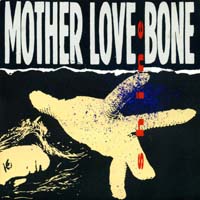2022-11-01
The Musical Journey of Richard Strauss
If you're a classical music fan, then you must have heard of Richard Strauss. He was alegendary German composer and conductor of the 20th century who left us with an incredible repertoire of music, from operas to orchestral works, chamber music to songs. He was a pioneer of musical modernism and took symphonic music to new heights. Join me as we explore the musical biography of Richard Strauss, from his beginnings to his most famous works.
Beginnings:
Richard Strauss was born in Munich, Germany in 1864. He was the son of a leading horn player in the Munich Court Orchestra, so music was in his genes from the start. He started composing at a young age and later studied under the famous composer, Heinrich von Bülow. His breakthrough came in 1896 with his composition Don Juan, which is a tone poem for orchestra that tells the story of the infamous lover. This composition made him an overnight success and established him as one of the greats.
Musical Style:
Richard Strauss was considered one of the leading advocates of musical modernism. His music combined innovativeness with traditionalism, and he made symphonic music exciting for his audiences. He was a fan of programmatic music, where music is used to tell a story, and his compositions were often narrative in nature. He incorporated unconventional musical techniques, such as dissonant harmonies, chromaticism, and extended tonality into his music. He also used a range of instrumental colors, dynamic contrasts, and musical motifs to produce tension and excitement.
Most Famous Albums:
One of Richard Strauss' most iconic albums is Also sprach Zarathustra. It is a tone poem written between 1895 and 1896, and inspired by Friedrich Nietzsche's philosophical treatise with the same title. Its opening section was used in the Stanley Kubrick film, 2001: A Space Odyssey, and remains one of the most recognizable pieces of classical music. Another Strauss classic is Ein Heldenleben (A Hero's Life), which was written in 1898 and is a semi-autobiographical work that depicts a hero, possibly Strauss himself, conquering adversity. Till Eulenspiegels lustige Streiche (Till Eulenspiegel's Merry Pranks) is another of Strauss' famous albums. It is a tone poem that tells the story of a jester who continually fools the establishment until he is finally caught and punished.
Most Famous Songs:
Of the tenor vocal repertoire, one of the most famous songs written by Richard Strauss is Morgen, which was published in 1897. It is a serene and romantic song that talks about a longing for the future. Another famous Strauss song is Zueignung, a love song that was published in 1885. Its melody is pure poetry. Im Abendrot is another one of his famous songs and talks about the beauty and stillness of life, and the inevitability of death.
Richard Strauss was an innovative composer who left an enormous legacy in the world of classical music. His progressive influence in music was apparent in the ground-breaking soundscapes of his time. He experimented with new musical ideas, techniques, and sounds, and his music still influences composers and music lovers today. His compositions remain beloved by many, and his contribution to music has ensured that he will always be remembered and celebrated as one of the greats.
Richard Strauss was an innovative composer who left an enormous legacy in the world of classical music. His progressive influence in music was apparent in the ground-breaking soundscapes of his time. He experimented with new musical ideas, techniques, and sounds, and his music still influences composers and music lovers today. His compositions remain beloved by many, and his contribution to music has ensured that he will always be remembered and celebrated as one of the greats.
Beginnings:
Richard Strauss was born in Munich, Germany in 1864. He was the son of a leading horn player in the Munich Court Orchestra, so music was in his genes from the start. He started composing at a young age and later studied under the famous composer, Heinrich von Bülow. His breakthrough came in 1896 with his composition Don Juan, which is a tone poem for orchestra that tells the story of the infamous lover. This composition made him an overnight success and established him as one of the greats.
Musical Style:
Richard Strauss was considered one of the leading advocates of musical modernism. His music combined innovativeness with traditionalism, and he made symphonic music exciting for his audiences. He was a fan of programmatic music, where music is used to tell a story, and his compositions were often narrative in nature. He incorporated unconventional musical techniques, such as dissonant harmonies, chromaticism, and extended tonality into his music. He also used a range of instrumental colors, dynamic contrasts, and musical motifs to produce tension and excitement.
Most Famous Albums:
One of Richard Strauss' most iconic albums is Also sprach Zarathustra. It is a tone poem written between 1895 and 1896, and inspired by Friedrich Nietzsche's philosophical treatise with the same title. Its opening section was used in the Stanley Kubrick film, 2001: A Space Odyssey, and remains one of the most recognizable pieces of classical music. Another Strauss classic is Ein Heldenleben (A Hero's Life), which was written in 1898 and is a semi-autobiographical work that depicts a hero, possibly Strauss himself, conquering adversity. Till Eulenspiegels lustige Streiche (Till Eulenspiegel's Merry Pranks) is another of Strauss' famous albums. It is a tone poem that tells the story of a jester who continually fools the establishment until he is finally caught and punished.
Most Famous Songs:
Of the tenor vocal repertoire, one of the most famous songs written by Richard Strauss is Morgen, which was published in 1897. It is a serene and romantic song that talks about a longing for the future. Another famous Strauss song is Zueignung, a love song that was published in 1885. Its melody is pure poetry. Im Abendrot is another one of his famous songs and talks about the beauty and stillness of life, and the inevitability of death.
Richard Strauss was an innovative composer who left an enormous legacy in the world of classical music. His progressive influence in music was apparent in the ground-breaking soundscapes of his time. He experimented with new musical ideas, techniques, and sounds, and his music still influences composers and music lovers today. His compositions remain beloved by many, and his contribution to music has ensured that he will always be remembered and celebrated as one of the greats.
Richard Strauss was an innovative composer who left an enormous legacy in the world of classical music. His progressive influence in music was apparent in the ground-breaking soundscapes of his time. He experimented with new musical ideas, techniques, and sounds, and his music still influences composers and music lovers today. His compositions remain beloved by many, and his contribution to music has ensured that he will always be remembered and celebrated as one of the greats.
Tag: Richard Strauss, musical biography, best songs, playlist
2022-11-01
The Musical Biography of Future
Future is one of the most popular hip-hop artists of our time. He has become a cultural icon with his signature mumble rapping style and auto-tuned vocals...read more
2022-01-01
Sheena Easton: An Exploration of Her Musical Legacy
Sheena Easton was a Scottish singer and songwriter that rose to prominence in the early 1980s. From her first single Modern Girl, which topped the U...read more
2023-05-04
Stay tuned for amazing new releases in may 2023
It's a fantastic time to be a music fan! With new albums being announced and released at constantly, it can be hard to keep up with all the releases. That's why we at Staimusic have an ultimate guide for upcoming albums, so you'll never need to stay in the dark! In the upcoming months, many acclaimed artists have some big releases planned; from Arlo Parks and Foo Fighters, to Squid and King Krule, as well as PJ Harvey, Christine and The Queens, Kaytraminé, Lucinda Williams, Killer Mike and Nation of Language! Julie Byrne also has something highly anticipated ready for listeners...read more
2022-01-01
Mother Love Bone: An Underappreciated Grunge Classic
Mother Love Bone was a legendary and influential band in the grunge/hard rock genre of music in the late 1980s. They are often overlooked as just another one-hit wonder, but if you dive deeper into their brief catalog, much more lies beneath the surface...read more
2024-06-19
Exploring the Eclectic Sounds of Deep Forest
If you’re looking for an artist to put your speakers through their paces, Deep Forest might not be the one. With its ambient atmospheres and subtle instrumentals, this French-based groupis far from electrifying - but don't worry, that's a good thing! Looking for some chill tunes? Packed with eclectic synths and programmed beats combined with tribal vocals in multiple languages (including Swedish yodeling!), Deep Forest is sure to spice up your day...read more
SUGGESTED PLAYLISTS







